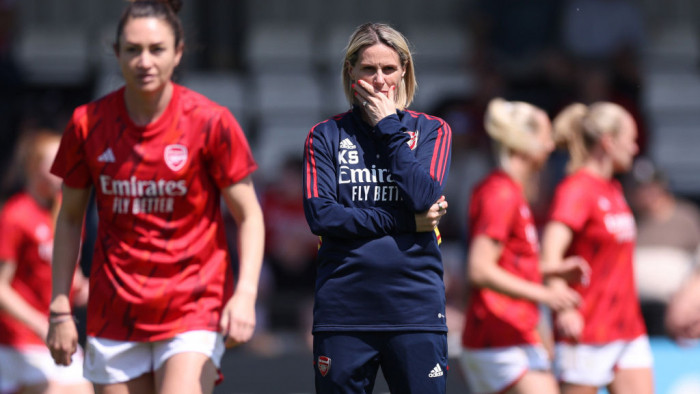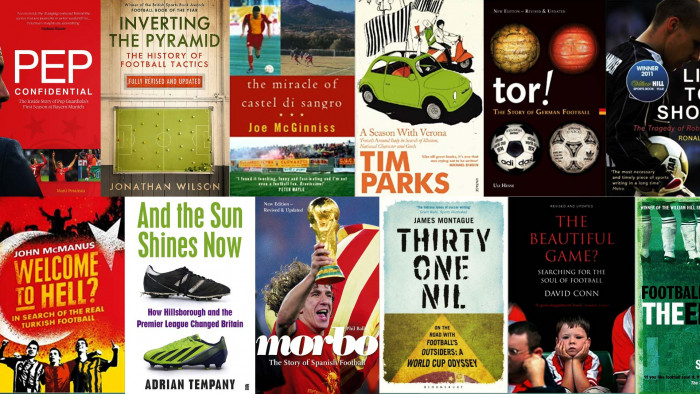As Man City and Stoke contest Saturday’s final, Mark Bailey assesses how the FA Cup’s values could safeguard the integrity of a sport transformed by money
When the Department For Culture, Media And Sport selected the 100 icons that best symbolised the history and lives of the people of England in 2006, alongside parliament, Shakespeare’s Globe Theatre, roast beef and ‘the weather’, it nominated a 19in-tall, 5kg silver pot: the FA Cup.
The richer, more glamorous Premier League wasn’t included. Too sullied by images of self-indulgent sheikhs, players cuckolding their team-mates and Ashley Cole almost crashing his car in horror at being offered £55k a week, it entertains but fails to tug at the nation’s heartstrings. Fans are addicted, but not in love. The Premier League might be the financial spine of English football, but it’s the romance of the FA Cup that nourishes its soul.
The FA Cup was founded in 1871 when FA secretary Charles Alcock set up a tournament “for which all clubs belonging to the Association should be invited to compete”. This democratic foundation of the competition, which today sees Manchester United register alongside Mangotsfield United, is the key to its emotive appeal and the antidote to the opulent exclusivity of the English top flight and Champions League.
Lawrie Sanchez, who scored Wimbledon’s winning goal in their shock 1988 FA Cup final victory over Liverpool, explains: “The Chelseas of this world have plenty of opportunities for glory, but the FA Cup gives every small team a moment in the spotlight. It might be hanging on for a replay or losing 8-0 at Old Trafford, but you have your moment. I was lucky enough to win it, collect my medal from Princess Diana and make history.
“I remember a journalist saying to me, ‘Nobody will remember your goal.’ But more than 20 years later, they do. Better players than me haven’t scored in an FA Cup final, but that moment changed my life.”
UNLIKELY HEROES
The FA Cup creates instant heroes. In the 1966 final, Everton reserve Mike Trebilcock scored twice, despite being so little known that his name wasn’t even in the match programme. Another unlikely champ is Ricky George, who scored the winning goal for non-league Hereford United in their 2-1 victory over top-tier Newcastle in the Third Round in 1972. What impact did that goal have on his life?
“I…” he falls silent. “I’m sorry. It’s immeasurable. I’m asked for interviews every year. I’ve worked in the media, written a book. I just received a commendation from the Mayor of Hereford for services to the city. People forget that I only came on as a substitute.”
Unlike the privileged, money-spinning Premier League, the FA Cup has always belonged to the people. In 1923, 200,000 fans (some reports even put the number at 300,000) squeezed into the 125,000-capacity Wembley Stadium for its first final and, in 1946, midweek ties were banned after Downing Street reacted furiously to 80,000 workers turning up to Derby vs Birmingham.
George recalls what the FA Cup meant to Hereford fans: “The capacity at Hereford was 14,000, but there were 20,000 [in and] around the ground, hanging off floodlight pylons and climbing trees. The pitch was invaded by hundreds of little boys. Even today I run into men in their 40s who say, ‘I was on the pitch.’ The impact it had on a generation is beyond comprehension.”
Malcolm Clarke, chair of The Football Supporters’ Federation, believes today’s supporters still cherish the competition. “Don’t tell me that Crawley fans didn’t enjoy going to Old Trafford this season, or that Leyton Orient fans didn’t celebrate getting a replay with Arsenal,” he says. “I’m a Stoke fan and the internet message boards are buzzing with stories of people cancelling holidays to get to Wembley [the venue for this Saturday’s final] and getting into trouble by missing birthdays and anniversaries.”
With its history and traditions, the FA Cup is also invaluable in rebuilding English football’s crumbling international reputation after its disastrous 2018 World Cup bid. The final is beamed to 400 million fans in 160 countries.
“The FA Cup is a great vehicle to export English football’s values,” says Nigel Currie, director of sports sponsorship agency brandRapport. “We specialise in tradition. Spain, Germany and Italy can’t promote the same values as the FA Cup or claim to be the home of football.”
CHANGING HISTORY
The FA Cup’s unique democratic ability to share magic and memories — not money — around the clubs, players and fans of England is what gives English football its soul and identity. Without it, what unites football fans in England? Certainly not England’s national team, or the mercenaries of the Premier League.
“The FA Cup is the most important aspect of English football’s heritage, so it is of paramount importance that it is preserved,” says George.
Worryingly, with minimal prize money — winners of the FA Cup receive £1.8m, while Premier League champions pocket £50m, Champions League winners collect more than £100m and promotion from the Championship is valued at £90m over three years — more clubs are fielding weakened teams in order to protect their financial priorities, and attendances are dwindling.
“The FA must make a stand,” warns Sanchez. “Even smaller teams are resting players in Cup games so that they’re fresh for a relegation battle or promotion push.”
To safeguard the FA Cup’s future, the FA is discussing several controversial changes to the historic competition, including seeding the draw to ensure that more small clubs play Premier League opponents, abandoning replays to avoid fixture congestion, shifting the final from 3pm to 5.30pm to increase viewing figures and offering a lucrative Champions League place to the victors.
Currie believes that change shouldn’t be feared. “Every sport needs to be aware of its product, and we’ve been a bit slow because the FA Cup is iconic and no one wants to tamper with it,” he says. “But innovations in TV screening, kick-off times, technology, sponsorship and match location shouldn’t be dismissed. Cricket, tennis and golf have all benefited from innovation.”
What do supporters think? “Seeding isn’t welcome —the randomness makes the Cup so special,” says Clarke. “Replays could be reviewed for later rounds, but they’re important in earlier rounds — they provide excitement and a source of income for smaller clubs. We proposed reduced ticket prices to encourage full houses and the FA is discussing a rule so that clubs must field five players who played the previous week to keep its status strong.”
According to David Davies, former executive director of the FA and author of FA Confidential, there is conflict between romance and remuneration. “I once thought that all Premier League clubs should be drawn away so that we get wonderful games at smaller clubs, but the opposition comes from the small teams. They want the big pay day of playing at Old Trafford. Fans want the romance, but the finance director will disagree.”
Davies agrees that a Champions League reward would make an enormous difference to the status of the FA Cup, but insists that the Premier League is “implacably opposed to it”. Ultimately, Uefa, the European governing body, makes the entry rules, but in a statement to ShortList, Uefa insists the proposal has “not been on the agenda lately”.
INNOVATION AND TRADITION
However, talk of major changes and more lucrative incentives for the winner misses the point. The FA Cup’s appeal is based on the emotive power of its history and traditions. To abandon them is to dilute the spirit of the Cup and that of English football. Without them, the FA Cup is, to echo the words of a fan in 1883, “nowt but a teapot”. Similarly, the FA Cup has never been about the main protagonists — the winners — but more the supporting cast of underdogs, heroes and fans who provide the drama. That is why the FA Cup is so endearing: it stands above the financially incentivised culture of modern football. The irony is that, with intelligent marketing, that very quality could make the FA Cup powerful once more.
“The FA Cup has a unique appeal that other countries envy,” explains Currie. “The fact that the minnow has a chance gives it incredible romance and its history provides status. Look at what the Americans are desperate to do with the [golf] Masters, emphasising history in a competition that isn’t that old. The Super Bowl is only on No45, but they recognise that people love tradition and romance. Those competitions successfully marry history with innovation.”
Here lies the secret to the FA Cup’s future. “We shouldn’t fear change, so long as it’s respectful,” advises Davies. “The FA Cup faces very stiff competition, so let’s not whistle in the wind. But subtle reforms with sponsorship, rules, TV times and other intelligent innovations can help to retain the status of this very special trophy.”
It may seem like an impossible task to defend the Cup — and the soul of English football — against the gluttony of more financially focused competitions. But as the former BBC broadcaster Bryon Butler said: “There will be no future for the Cup when the impossible is no longer possible.”
(Images: Rex Features, PA)
Latest
Related Reviews and Shortlists










